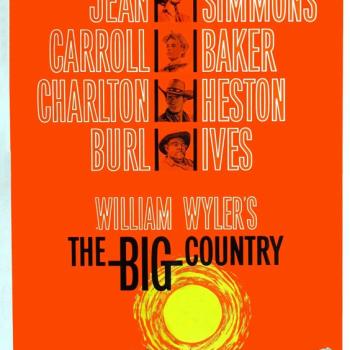I once sat in a courtroom listening to horrific crimes being read out at an arraignment. There were hundreds of crimes, and it took several hours to read them. The defendant pled guilty to them all. I was there with one of the victims and we were surrounded by other victims and/or their families. To this day it remains the most confronting context I have experienced around justice with its elements of vengeance and punishment.
The plea allowed everyone to avoid a trial. But the prosecutor informed the families after the arraignment, it also meant the defense would argue that the defendant (who, according to the laws of the state, could at most have life in prison) could come up for parole after a dozen or so years. The families were mostly stoic, but a few were angry. It was clear some of them would be participating in a movement to change the policy of the state, promoting legislation with more strict punishments without the possibility of parole.
I found myself thinking about what we are trying to do within our legal system. No punishment could ever rectify or even the score with these victims or their families. So what are we trying to do in our courts and with our sentencing? Are we wanting to inflict pain out of some sort of vengeance? Are we trying to deter crime? Are we trying to create a society where there are proportional consequences for behavior? While I agree with the effort to try to prevent more crimes through longer incarceration, I was troubled by the emotions that could drive such an effort.
At the time, I was also haunted by the memory of the phrase on a magnet I had bought in Montgomery, Alabama at Bryan Stevenson’s Equal Justice Initiative. It quoted Stevenson’s famous dictate that “everyone is more than the worse thing they have done.” I thought I believed this, but being engaged in the process made me question the values I thought I had, both as a Christian and as a supporter of the commitment to earthly justice as process rather than outcome.
The history of justice includes a focus on deterrence, retribution and even sometimes restoration. Retribution is the one we associate with some of the world’s oldest law forms, such as the ones in the Old Testament. They assume an equal action in response to a crime—an “eye for an eye” (Exodus 21:24). But many of these law codes also included compensation for the victims. In fact, some scholars argue that it was the compensation that convinced the Germanic peoples to accept the wergild rather than private vengeance. Retribution also satisfies the need for vengeance that many people feel, but it is mediated through the state rather than the individual.
The desire we have for vengeance is understandable, but it is a poison that Jesus warns us against and tries to protect us from. The Sermon on the Mount encourages us to forgive those who have wronged, and both the New and Old Testament encourage us to ask for God to avenge us (Romans 12:19, Deuteronomy 32: 35). Vengeance was something that the retributive system tried to prevent or replace due to the way it tore apart communities in a never-ending cycle of violence.
Retribution requires that people who commit crimes be punished, but that no one who is innocent or incapable of making rational decisions (such as children) be punished in the same way. However, deterrence has different priorities: preventing people from committing crimes. In this scenario, occasionally the guilty might go free if it is better for the community or preventing misbehavior. Or perhaps an innocent person might be occasionally punished if it prevents more crimes from being committed.
The latest versions of restorative justice try to avoid both of the negative side effects of the criminal justice system, whether it focuses on retribution or on deterrence. Howard Zehr’s scholarship on restorative justice differentiates it from the criminal justice priorities this way: Criminal justice asks: Who broke what law and what should we do with them? Restorative Justice asks: Who was hurt, what are their needs and what are our obligations to them. Still, while restorative justice attempts to repair the hurt, that doesn’t mean it won’t also involve consequences such as incarceration or financial or other sorts of requirements in order to rebuild relationships and restore the community to health.
While the desire of families or victims to inflict pain on those who caused so much hurt or death, research shows that the psychological catharsis of vengeance actually does not create positive feelings. Revenge isn’t actually sweet. In fact, scholars of this phenomenon find that the only revengers who feel better than non-revengers are those who received some sort of indication that the person they inflicted punishment on understood why they were being disciplined. Communication and understanding seemed to be required for real justice to be seen to be done.
As someone who studies the development of the liberal system of rights, which includes the idea of justice as process rather than outcome, I still wrestle with how to reflect on the human desire for an eye for an eye. The victims that I have come into contact with do in fact often wish that the perpetrators of crimes would suffer. In the story I started with, I also had anger and wanted to punish the criminal–with violence, if I’m honest. And yet, in many situations there is no way that a criminal can suffer concomitantly to the pain they have inflicted. It just isn’t possible.
And this is why many Christians have leaned on the concepts in the gospel for forgiveness (not a forgiveness without consequences, mind, but forgiveness nonetheless). I don’t have answers for those who are suffering and asking why their loved ones were victims. Make no mistake, I wanted (and still believe in) the full extent of the law being inflicted on the particular criminal I described above. Also, I know there can’t be enough punishment in the world to make up for the pain. And I want to live in a world where we work for healing. This starts with naming the crimes, and it is made possible by a guilty plea. And then we do our best to work out what the consequences will be that best serve the needs of the community. And we ask for God’s forgiveness to come into our hearts so we are free to love and work for the flourishing of the Beloved Community.













